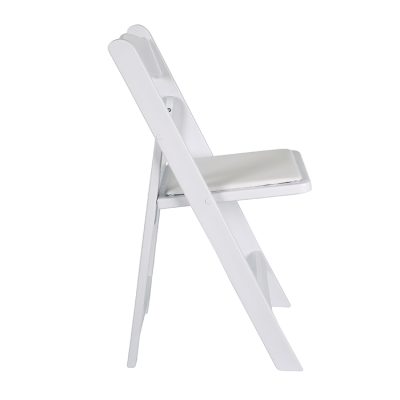





| Type: | Resin Folding Chairs |
| General Use: | Indoor, outddor |
| Size: | 55*47*70cm |
| MOQ: | 3pcs |
| Description: | Acrylic Plastic Folding Chair Stacking Transparent Folding Chair |
| Material: | Resin +metal |
| Weight | 514g |
| Packing: | 85*19*49cm |
| Lead time | within 20 days |
| Payment | TT,30% in advance,70% balance to be paid against copy of B/L |
Folding tables and chairs, lightweight and stackable seats, are convenient to move and save space. The history of folding chairs In ancient Egyptian furniture, folding chairs are listed as one of the most important furniture. The development of the folding chair began around 2000-1500 BC. The original folding chair was a special seat for military commanders on the battlefield, and it was also a symbol of power and prestige. The seat panel and the back panel are generally made of virgin PP plastic in one-piece injection molding; the chair frame and chair legs are made of square steel pipes sprayed with electrostatic silver powder. The square steel pipes are stronger and more durable than round steel pipes; and has a tendency to flow under the action of external force during softening. It is a solid, semi-solid, or liquid organic polymer at room temperature. In a broad definition, any polymer compound that can be used as a raw material for the processing of plastic products is called a resin.
According to this method, the resin can be divided into addition polymer and condensation polymer. Addition polymer refers to a polymer prepared by addition polymerization reaction, the chemical formula of the chain link structure is the same as the molecular formula of the monomer, such as polyethylene, polystyrene, polytetrafluoroethylene, etc.
Condensation polymer refers to a polymer prepared by condensation polymerization reaction, the chemical formula of its structural unit is different from the molecular formula of the monomer, such as phenolic resin, polyester resin, polyamide resin and so on. Synthetic resin is a kind of high molecular polymer artificially synthesized. The most important application of synthetic resin is the manufacture of plastics. In order to facilitate processing and improve performance, additives are often added, and sometimes directly used for processing and forming, so it is often synonymous with plastic. Synthetic resin is also the basic raw material for the manufacture of synthetic fibers, coatings, adhesives, and insulating materials. There are many types of synthetic resins. Among them, polyethylene (PE), polyvinyl chloride (PVC), polystyrene (PS), polypropylene (PP) and ABS resin are the five general resins, which are the most widely used synthetic resin materials.




















